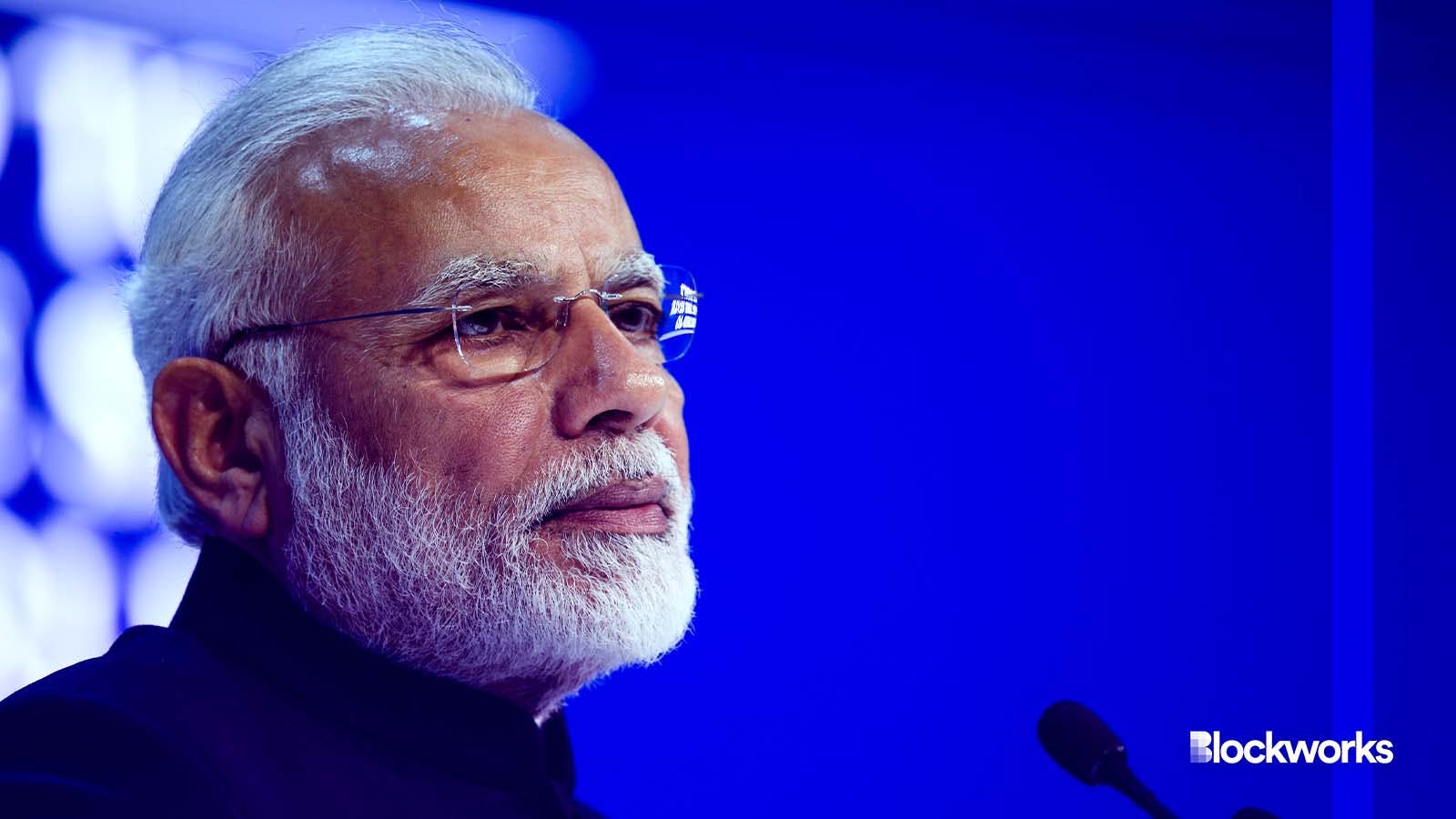India to block URLs of Kraken, Binance, 7 other crypto firms
India’s Financial Intelligence Unit moved to block the URLs of nine crypto exchanges

India Prime Minister Narendra Modi | "Opening Plenary with Narendra Modi, Prime Minister of India"/World Economic Forum (CC license) modified by Blockworks
India’s Financial Intelligence Unit wants the Ministry of Electronics and Information Technology to block the URLs of nine crypto exchanges.
The move will block Binance, Kraken, Huobi, Kucoin, Bittrex, Gate.io, Bitstamp, Bitfinex and MEXC Global after claiming that the virtual asset service providers (VASP) were “operating illegally” and did not comply with the Prevention of Money Laundering Act.
India has been working to align crypto with its traditional finance sector, having mandated in March that crypto companies must collect know-your-customer (KYC) information. At the same time, it also mandated that crypto firms register with the FIU.
Read more: All crypto companies in India must now KYC users
Any VASP with Indian operations — whether they’re on or offshore — must register with the Financial Intelligence Unit as a reporting entity and abide by the Prevention of Money Laundering Act.
While there are currently 31 entities registered with the FIU, “several offshore entities, though catering to a substantial part of Indian users, were not getting registered and coming under the Anti Money Laundering (AML) and Counter Financing of Terrorism (CFT) framework.”
The FIU issued “show cause notices” to the nine blocked VASPs, a press release said. It’s unclear what ramifications, other than the blocking of the URLs, that the companies face for failing to register.
Prime Minister Narendra Modi expressed in August the need for global crypto regulation.
“The rules, regulations and framework around it should not belong to one country or a group of countries. So not only crypto, but all emerging technologies need a global framework and regulations,” Modi said.
India hasn’t been very welcoming to crypto, having imposed high capital gains taxes on crypto profits. The country has a whopping 30% tax on crypto gains, which is higher than the tax rate on equities or other investments.
Its central bank governor also referred to cryptocurrencies as speculative gambling activities.
However, Chainalysis found that India leads the world in “grassroots crypto adoption” earlier this year. The country is the second-largest crypto market by raw estimated transaction volume.
Get the news in your inbox. Explore Blockworks newsletters:
- The Breakdown: Decoding crypto and the markets. Daily.
- 0xResearch: Alpha in your inbox. Think like an analyst.






